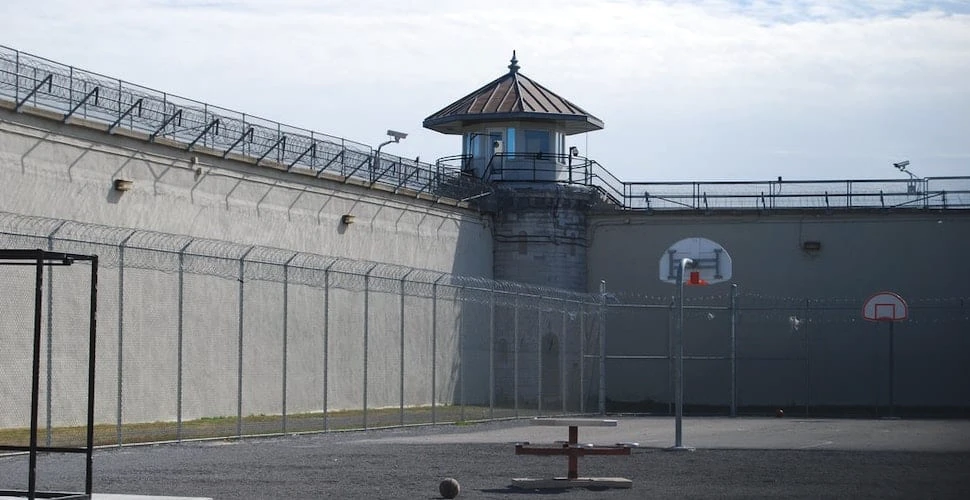“I’ve even seen some people that refused, and they were sent to solitary confinement. […] It’s very disheartening. It needs to stop. It’s inhumane.” – Aisha Northington, formerly incarcerated in Georgia
Speaking to the Guardian, people with experience of being incarcerated in the U.S. report how they were forced to work despite suffering from medical conditions.
Prison slavery in the U.S. constitution
The vast prison system in the U.S. traps an estimated 1.2 million people in a legal system of forced labor. Despite its stated objective to abolish slavery in 1865, under the 13th Amendment of the U.S. Constitution slavery and involuntary servitude remain legal as punishment for a crime through the “Exception Clause”, also known as the Punishment Clause. This means that for incarcerated people, being subjected to forced labor behind bars is an everyday risk.
Susan Dokken, now aged 60, explained how she was forced to work during her time in prison even after suffering a stroke that left her unable to speak.
She said “I couldn’t work and wasn’t supposed to, and I couldn’t even talk for a year.” Nevertheless, she was sent to work in a men’s prison to make lunches with an exploitative wage of 12 cents per hour. If she refused, she risked having key privileges revoked that could potentially follow her throughout her parole and probation.
Human suffering drives corporations’ profits
This is forced prison labor – an intentional component of a fundamentally inhumane prison system designed to provide labor for pennies to line the pockets of corporations. Two out of three incarcerated people report being subjected to forced labor during their time in prison.
According to a June 2022 report published by the American Civil Liberties Union, prison labor generates more than $11bn annually, with more than $2bn generated from the production of goods, and more than $9bn generated through prison maintenance services. Wages range on average from 13 cents to 52 cents per hour, but many prisoners are paid nothing at all, and their low wages are subject to various deductions.
[…]
76% of workers surveyed reported they were forced to work or faced additional punishment, 70% said they could not afford basic necessities on their prison labor wages, 70% reported receiving no formal job training and 64% reported concerns for their safety on the job.
The inhumane conditions in the U.S. prison system, including forced labor, not only fail to reduce recidivism rates and support people to reintegrate into society but dehumanize people to the extent that their physical and mental health is entirely disregarded.
James Finch who was incarcerated in Florida reported that he worked at a recycling plant when he started experiencing partial paralysis of his face. He said “I never received a bit of pay for any of the work that I had done. I thought my face would return to normal, in most cases it does, but mine didn’t.”
Where the U.S. goes from here
The United States must reckon with the injustices faced by incarcerated people borne out of the Punishment Clause. At the same time, we recognize that this is a first step in tackling the myriad of other state and federal laws excluding incarcerated people from minimum wage and labor rights protection, as well as the need for the public and private sector to divest from facilities that subject incarcerated people to severe labor exploitation.
Join the campaign calling on the U.S. to outlaw slavery for good.







Freedom United is interested in hearing from our community and welcomes relevant, informed comments, advice, and insights that advance the conversation around our campaigns and advocacy. We value inclusivity and respect within our community. To be approved, your comments should be civil.
Sorry, but hard labor should be a part of prison, if properly convicted.
HOWEVER, if as in this case, someone is physically unable, they should not be. I think a line needs to be drawn on those able (not willingness) and those unable. In polite society, as we’d call it, we do draw a line there.
However, if physically able determined by conditions such as this, they should have to work, hard work at that. I see no problem with the community they have wronged benefiting in some way.
Please act to rid US prisons of forced labor laws. These laws continue to enslave prisoners and profit only the people/companies that continue to have control of prisoners’ lives through these terrible enslavement laws.
As a child I was placed in the Illinois Youth Commission, a fancy name for the Juvenile Department of Corrections. My “crime” was “habitual runaway.” We were forced to work in women’s prisons, state mental institutions for the criminally insane, and rat killing on a pheasant conservation facility-armed with 2×4’s. No pay whatsoever.